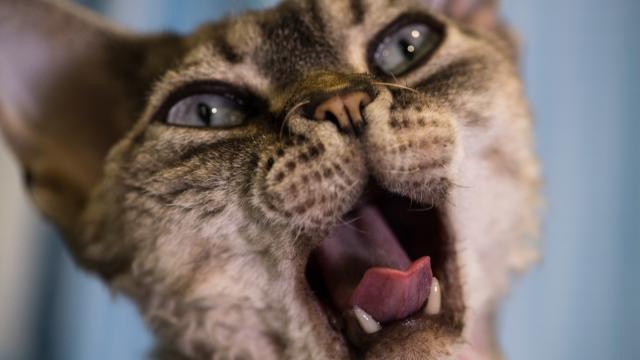People who use homemade cat food — based on recipes from books and the internet — to feed their precious felines may be inadvertently harming them, suggests a new study out this week. The study’s authors found that all of the nearly 100 recipes they examined had at least one glaring dietary flaw. In some cases, they even contained dangerous ingredients that can make cats seriously sick.
Researchers at the University of California, Davis scrutinised 114 cat food recipes found on the internet and in cookbooks, using software to estimate their nutritional content. Then they compared the content of these recipes to the dietary guidelines for healthy adult cats created by the National Research Council, a well-trusted source on dog and cat nutrition.
In total, 94 recipes provided detailed-enough information for a nutritional tally. All of them failed to meet the allowance for at least one essential cat nutrient, such as taurine, iron, or vitamin E, and most failed to meet the allowance of three or more nutrients (at least one recipe provided insufficient levels of 19 nutrients).
Recipes that were clearly written by non-veterinarians or didn’t include instructions to add in supplements flunked worse, while five recipes reviewed by vets had all of the needed nutrients except for choline (in two of these recipes, it was unclear how much taurine was provided).
Study senior author Jennifer Larsen, a veterinarian and researcher in clinical dog and cat nutrition at UC Davis, told Gizmodo via email that there’s no clear sense of how often cat (and dog) owners are turning to homemade recipes for their pet’s diet. But plenty of owners who do use them have come to their clinic with sick pets, while others have just come for advice on keeping their pets healthy. And when she and others have checked the nutritional content of these diets, they almost always come up short.
These experiences led Larsen’s team to previously audit homemade recipes for dogs as well as for cats with kidney disease. But as far as she can tell, their study, published in the Journal of the American Veterinary Medical Association, is the first attempt to look at recipes meant for healthy cats.
“It is not a simple process to properly formulate a balanced and appropriate homemade diet for a dog or cat,” Larsen said. “Extensive training and expertise is necessary in order to fully understand the various aspects of this process.”
Like humans, cats can develop malnutrition from poorly balanced diets. Given the wide range of nutritional content in these recipes and the overall health of the cat eating them, that risk can vary. But in 7 per cent of the recipes, ingredients like garlic, onion, and other plants belonging to the allium family were found — all of which can be potentially toxic and even fatal to cats and dogs in large enough or chronic doses.
Some recipes also called for raw animal meat, which can cause outbreaks of foodborne disease in both pets and people. Outside of this study, there’s also no shortage of people who insist on feeding their carnivorous cats an entirely vegan diet.
Some cat owners are unlikely to switch off homemade diets no matter what a study or vet tells them, so Larsen and her co-authors say those owners should consult with a veterinary nutritionist to make sure their cat’s diet stay as balanced as possible.
